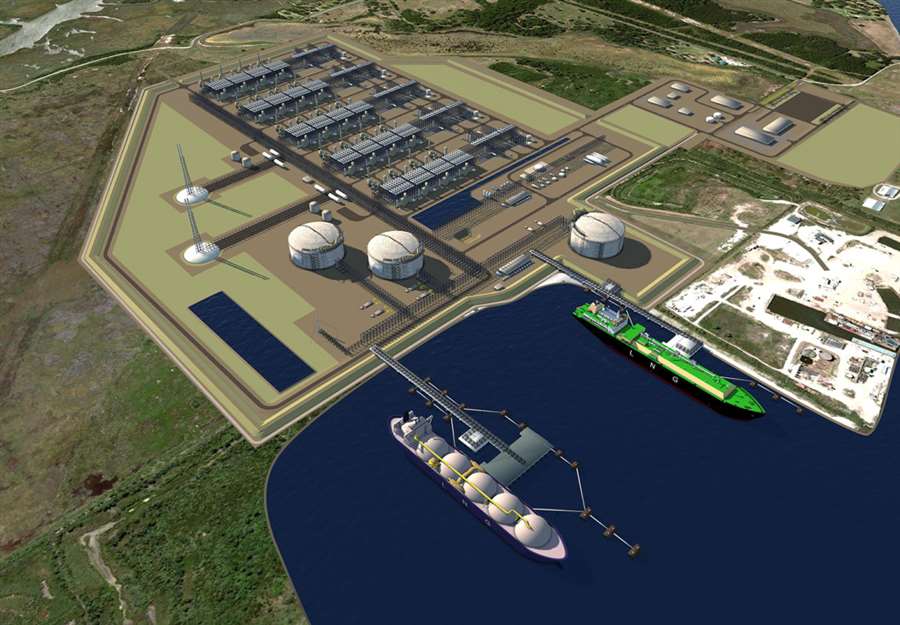As the shale gas boom has brought oil and gas drilling closer and closer to home for many Americans, banking and real estate experts have found that drilling may pose significant risks involving property values, homeowners, and mortgage lenders.
New documents obtained by DeSmogBlog show that the Federal Emergency Management Agency (FEMA) is the latest in a string of federal agencies and other major institutions that are now contending with the drilling boom’s impacts. And some landowners in Pennsylvania are now finding out that oil and gas development in their communities can cause unexpected difficulties – leading to new headaches for families who are already dealing with catastrophe.
Since the 1980’s, FEMA’s Hazard Mitigation Grant Program has worked to minimize the harms caused by disasters like floods. The program also provides help to those in areas that see frequent earthquakes or wildfires, taking measures to cut down on the harm done to people and to property.
Americans often turn to this program when their homes have been flooded again and again. It is a program of last resort, helping to pull back development from areas that are prone to disasters.
The program helps people move out of the path of future floods. It also protects open spaces, turning the residential lots into a no-construction-allowed buffer zone between homes and waterways. Sometimes the houses have already been washed away by floods; in other cases FEMA will demolish buildings altogether.
Tens of thousands of properties across the United States have been acquired by FEMA under this program since it was first established. It represents an effort to address future catastrophes preemptively, and many communities have depended on its aid during disaster recovery.
In Pennsylvania last year, Tropical Storm Lee caused historic flooding across a wide swath of the state. Over 100,000 state residents were displaced by the floods, and even the Governor’s mansion was evacuated due to concerns about flooding.
But some affected areas, like Susquehanna County and Wyoming County, are also home to some of the Marcellus shale’s fast-and-furious Pennsylvania drilling.
According to agency emails, at least 18 homeowners in Pennsylvania have been denied access to the Hazard Mitigation program because of oil and gas leases or pipeline rights-of-ways on their properties.
“When a landowner signs an oil and gas lease, part of the rights to use the surface of the property transfer from the landowner to the oil company,” wrote Michael C. Hill, a FEMA attorney in a June 14 email to a Pennsylvania Emergency Management Agency official. “The landowner and the oil company now co-own the rights to use the surface of the property and the oil company owns all of the oil and gas under the property.”
“Thus the landowner alone cannot transfer all of the surface rights nor the oil and gas rights,” he added, explaining that this prevents landowners with leases from meeting FEMA’s standards for purchasing land because oil and gas development is not allowed on land that FEMA purchases to protect open space and flood plains.
Mr. Hill lists seven properties, including those owned by Oakland Township, which he says do not meet federal standards for the floodzone program because they have an unacceptable oil and gas lease or a gas pipeline right of way.
Other agency documents reviewed by DeSmogBlog indicate that other property owners in Pennsylvania have been similarly turned down.
Officials from FEMA declined to respond to questions about these documents or how oil and gas leases affect FEMA’s programs.
If their land is not acquired, the affected landowners may be caught in a bind – unable to sell their land, they may face sharply higher federal flood insurance rates, which are hiked after repeated flooding, partly as an incentive for homeowners to participate in the HGMP program. If FEMA moves to acquire the land, the government may be legally required to conduct a review under the National Environmental Policy Act, some legal experts say, but this process is famously slow and can stretch on for decades.
A sky-rocketing number of people are living in the gas patch, and only beginning to figure out the implications. Between 2000 and 2010, there was a 49 percent increase in the number of natural gas wells drilled in the U.S., bringing the total to over half a million wells, according to the Energy Information Administration.
The oil and gas industry has worked hard to convince people who live in these areas that drilling is not only environmentally safe, but that signing an oil and gas lease on their property will have positive financial implications.
But as drilling expands to these new areas, regulators at the state and federal level are still scrambling to catch up. A lack of planning ahead of time has too often meant that regulators are faced with tough choices that now must be made under pressure, after problems emerge.
While some individuals may indeed financially benefit from drilling, the benefits are neither as dramatic nor as widespread as the industry suggests. And there are massive costs associated with the drilling rush, both environmentally and financially, especially for those who live near fracking operations.
The mortgage industry is increasingly taking note of the hazards posed by drilling in residential areas. This past April, North Carolina’s State Employees Credit Union warned borrowers that it would not approve leases, citing “heightened risk concerns” associated with fracking.
A recent report by one privately-owned mortgage bank, the Texas-based 360 Mortgage Group, noted that “in general, homes that are in close proximity of fracking may have a decreased home value of about 20 percent as a result of construction, noise, traffic, airborne dust, and road damage.”
“Signing a gas lease without lender consent is likely to constitute a mortgage default,” wrote attorney Elizabeth Radow last year in the November/December issue of the New York State Bar Association Journal.
“Even before the drilling commences, many upstate New York homeowners with gas leases cannot obtain mortgages,” she added, listing Bank of America, Wells Fargo and GMAC among lenders who either refuse to allow gas leases on mortgaged residential land or who impose strict limits on how gas companies can use the surface of the property.
Attorneys general in North Carolina, Maryland and New York have all issued advisories to landowners, warning them of potential mortgage conflicts.
Major insurance companies began to decline to provide insurance for risks related to fracking. In July, Nationwide Insurance became the first major insurance company to publicly announce that it would not cover damages from fracking, saying that the risks were “too great to ignore.”
Other government and quasi-government agencies have found themselves confronting new quandaries created by the drilling boom. Last fall, The New York Times was the first major news outlet to report that a growing chorus of bankers and mortgage lenders voiced concerns that oil and gas leases could conflict with terms set by Fannie Mae and Freddie Mac, which underpin the mortgage market nationwide.
The U.S.D.A., which has helped over 140,000 families in rural areas obtain their mortgage loans, decided in March that it was legally obligated to stop financing homes with leases until an environmental review was conducted (a policy which was reversed under pressure from drilling supporters like Oklahoma’s Rep. Dan Boren).
The people in Pennsylvania who’ve been affected by FEMA’s new policy are not gas-rich millionaires, according to a source familiar with their situation. Many own small lots, mostly a quarter or half acre, and have contended with repeated flooding, often because they cannot afford to live elsewhere. FEMA’s policy does not distinguish between those who’ve leased their surface rights to drillers and those properties where drillers did not lease the right to use the surface of the land.
Anyone who is considering signing an oil and gas lease should pay close attention to FEMA’s new policy, even if they’ve never experienced a flood, earthquake or wildfire. The long-term repercussions from assigning some of the rights to your land to an oil and gas company can be unexpected. The hazards associated with fracking have raised the hackles of many major institutions and, although any single property may never experience any environmental contamination, the risks in the aggregate are serious enough that policy-makers are beginning to take heed.
As Governor Cuomo gets closer and closer to making a decision about New York’s moratorium, he may want to keep a sharp eye on the events unfolding in Pennsylvania, where many have been learning the hard way about the dangers of a drill-baby-drill policy, especially in areas where people live and work.
Subscribe to our newsletter
Stay up to date with DeSmog news and alerts







